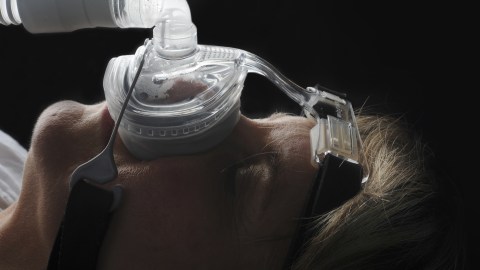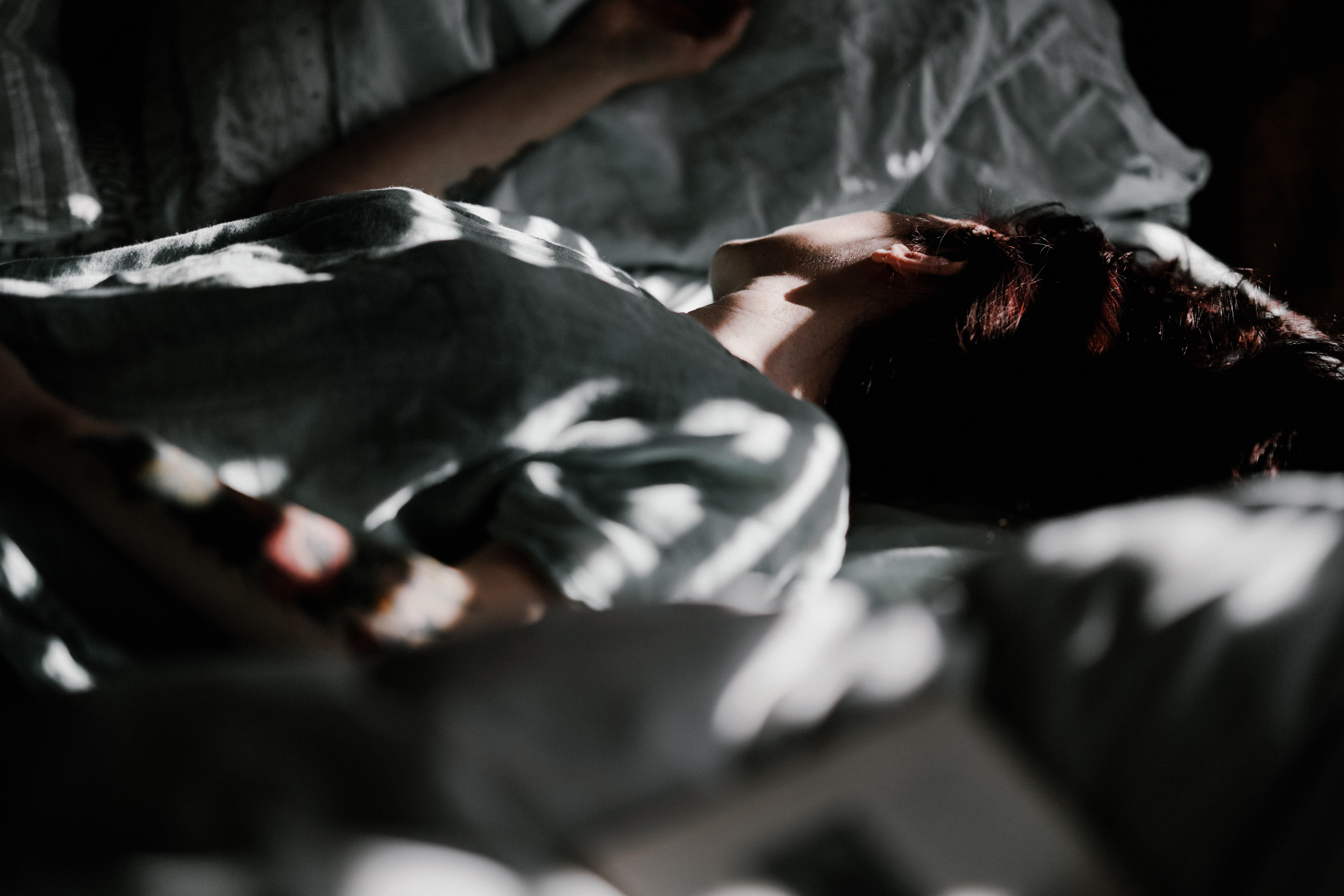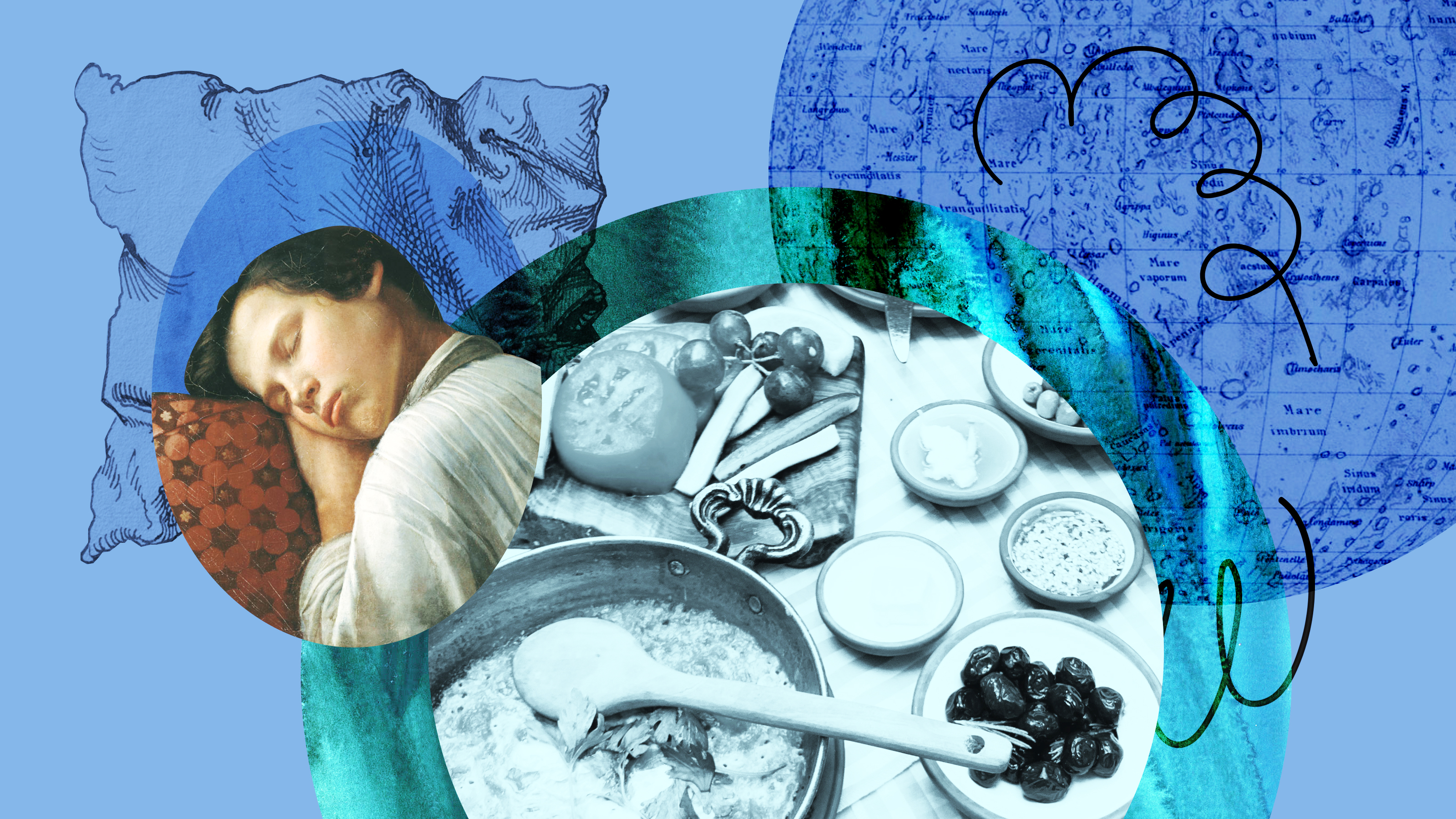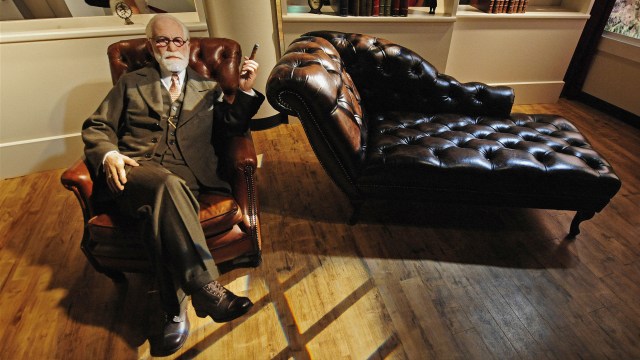Sleep apnea is surprisingly deadly. One in five adults has it

- Sleep apnea is a condition in which your breathing frequently stops and restarts during sleep, simultaneously depriving the body of vital oxygen and forcing you to repeatedly and unknowingly wake up.
- Moderate and severe forms of sleep apnea have disastrous health consequences, including a greater likelihood of dying from any cause.
- Luckily, there is an extremely effective treatment: a continuous positive airway pressure (CPAP) machine.
A pernicious scourge strikes an estimated one in five American adults as they sleep, and most are unaware of it: sleep apnea.
Sleep apnea is a condition in which your breathing frequently stops and restarts during sleep, simultaneously depriving the body of vital oxygen and forcing you to repeatedly and unknowingly wake up, often preventing adequate rest. Its most common form, called obstructive sleep apnea, is caused when the muscles supporting the throat and nose relax to such a degree that they entirely block your airway.
Back-sleeping makes the condition more likely. Obesity is also a large contributor, as overweight people tend to have more fat deposits around their upper airways. Smoking is an additional risk factor, inflaming the offending tissues.
Oxygen deprivation
It can be very difficult to know if you have sleep apnea if you don’t regularly sleep near someone else. Frequent, loud snoring often accompanies the disorder. Gasping for air at night is an even surer sign. If you routinely wake up with a dry mouth, have headaches in the morning, find it hard to stay asleep, or are often extremely sleepy during the day, you might have sleep apnea.
The overwhelming majority of sleep apnea cases go untreated, with often unknowing sufferers managing their fatigue through caffeine or daily naps. But letting the disorder run amok in the night can be disastrous for one’s health. Remember, sleep apnea sufferers are being chronically deprived of oxygen as they rest. This results in consequences during waking hours.
“We’re talking about car accidents in the daytime, lost productivity at work, mood swings, waking up feeling groggy, and falling asleep in class,” Jonathan Jun, director of the Johns Hopkins Sleep Disorders Center, said.
Hard on the heart
The dearth of oxygen damages the brain over extended periods, but its effects on the heart are more nefarious. The organ is forced to work much harder to get blood to the lungs, so it grows in size to pump more blood, becoming less efficient and causing high blood pressure in the process. As a result, people with severe sleep apnea, who wake up more than 30 times per hour, are three to four times more likely to die from any cause, shaving as much as a decade off their lives. People with the moderate form, who wake up between 15 and 30 times per hour, are 72% more likely to die. Heightened rates of heart attack and stroke primarily drive up mortality risk.
“Obstructive sleep apnea is destroying the health of millions of Americans, and the problem has only gotten worse over the last two decades,” said Timothy Morgenthaler, a professor of medicine at the Mayo Clinic specializing in sleep and pulmonary medicine. Rising obesity appears to be linked to increasing sleep apnea diagnoses.
Easy, life-extending treatments
Weight loss, diet, exercise, sleeping on your side, and abstaining from smoking or drinking alcohol can all reduce the severity of, or even sometimes resolve, obstructive sleep apnea. An extremely effective treatment also exists: a continuous positive airway pressure (CPAP) machine. The device, which operates through a mask worn over the nose and sometimes mouth, pipes humidified air down your airway, generating pressure to keep the throat open while you sleep, thus preventing pauses in breathing.
Unfortunately, as a doctor recently lamented on on the AskScience subreddit of Reddit, many of his patients are hesitant to sleep “hooked up to a machine,” despite a CPAP machine’s relative affordability and overt benefits. The device can restore patients’ sleep and halve or even eliminate their increased risk of death. At the same time, CPAPs don’t require the use of pharmaceutical drugs, have zero side effects apart from the initial discomfort of wearing a mask while sleeping, take effect straight away, and can be halted at any time. In modern medicine, we rarely see such a quick and simple fix for a serious health problem.





